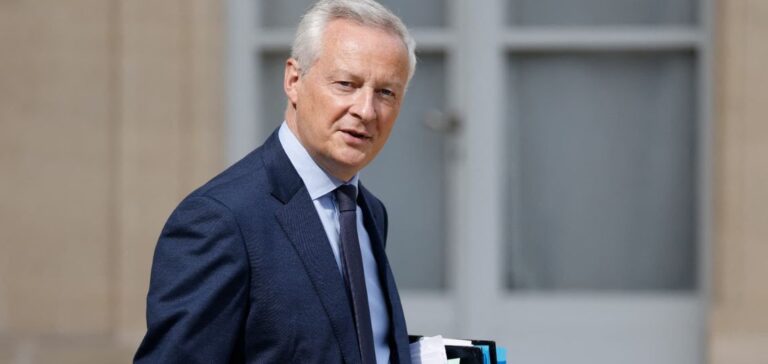With oil prices on the rise, French Economy Minister Bruno Le Maire asked energy giant TotalEnergies on Thursday to extend its cap on pump prices “beyond December 31”.
Call to extend the fuel rebate beyond 2023
“I would like TotalEnergies, which has made a commitment to cap the prices of all fuels, diesel and gasoline, at 1.99 euros until the end of the year, to extend this cap (…) beyond December 31, 2023,” the minister suggested on franceinfo. “TotalEnergies is the only major French oil company we have left, and that must be an asset for all motorists,” insisted Bruno Le Maire, before affirming his “confidence” in the energy company’s boss Patrick Pouyanné “so that he takes into consideration the difficulties of our compatriots”.
“We would like to thank Minister Bruno Le Maire for supporting our initiative to cap the price at 1.99 euros. We can see that the French appreciate it, and we’re very pleased,” reacted the energy giant.
Announced in February, “this measure will apply until the end of the year. We’re going to look at the subject for 2024”, its CEO said on Friday on Public Sénat.
“The measure is effective, understandable and therefore has many virtues. If we can see that the French understand it, then why not make it permanent. But first things first,” he added.
In 2022, TotalEnergies’ discounts of 20 and then 10 centimes from September to December 2022, cost the company 550 million euros and led to a flood of customers at its service stations. The multinational achieved its best-ever profit in 2022 at 20.5 billion euros, and remains highly profitable this year.
Discussions on the Fuel Price Cap at the Ministry of Energy Transition
A meeting with the energy company took place on Wednesday at the Ministry of Energy Transition to “take stock of fuel prices and discuss an extension” of this cap beyond January 1, Minister Agnès Pannier-Runacher’s entourage told AFP. Further discussions” are scheduled for Thursday and in the coming days with TotalEnergies “and other industry representatives” such as distributors, the same source added.
On the other hand, the government has ruled out any further generalized rebates on fuel prices, having already resorted to this solution in 2022 at an estimated cost of 8 billion euros. Bruno Le Maire sees such a rebate as a “triple aberration: ecological, budgetary and diplomatic”.
“Two countries, Saudi Arabia and Russia, have decided to reduce their production, which obviously has an impact on the price” by restricting global supply, he acknowledged.
Under these conditions, a new government rebate would be tantamount to “paying for the oil diplomacy of Mr. Putin and Saudi Arabia”.
Fuel Prices Close to Two Euros per Litre: Tensions and Demands for Rebates
Last week, fuel prices at the pump in France averaged 1.8587 euros per liter for diesel, and 1.9570 euros for SP95, according to the latest data published by the French Ministry of Energy Transition. A liter of SP98 was close to two euros, at 1.9990. By spring 2022, they had topped the two-euro mark, before declining slightly.
On Thursday, Bruno Le Maire refused to engage in “apothecary accounting” with the president of the Hauts-de-France region, Xavier Bertrand, who has called for a 15 to 20 centime rebate “for all” on a liter of petrol and accused the government of exaggerating the cost of such a measure.
“If we discount fuel prices by 20 centimes for a year, I can confirm that it costs 12 billion euros,” countered Bruno Le Maire on Thursday.
Why does it matter?
From a business, financial and energy market perspective, this request from the Minister of the Economy underlines the importance of maintaining stable fuel prices for French consumers. TotalEnergies’ decision could have an impact on household spending and the company’s profitability. Moreover, against a backdrop of global oil price volatility, this request highlights the challenges facing players in the energy sector, and the policy choices that flow from them.






















